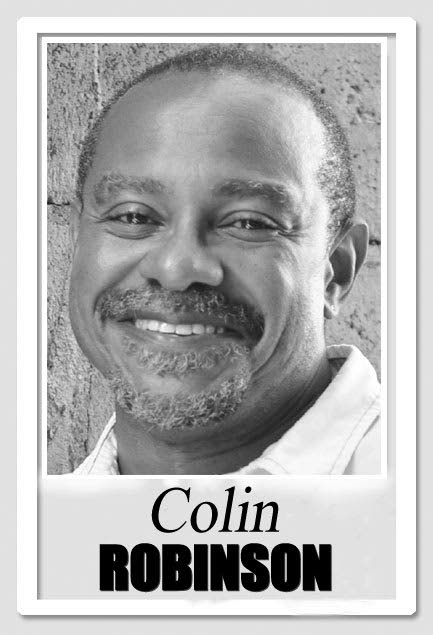No more tributes

An old flame I was sharing my current medical developments with (in the tabanca-prone’s pitiful hope of renewed intimacy) segued our conversation to my beliefs about an afterlife. He’s Yoruba – an adult convert. Hearing myself voice my idea of being egun to him made me sit up: I so want to come back. To punish people. To do for unremorseful wrongdoers.
Go on, judge: I’m sure I could catch many of you singing along lustily with Stalin, “Judgment morning, I by the gate and I waiting, because I begging the Master, give me a work with Peter. It have some sinners coming…I want to fix them personally…Burn he…Burn she!…This is my time for burning…Peter, keep the fire blazing.”
Conversation with Marshall then travelled on to reflections about mortality. And, with them, my clarity that whether I die in surgery this week, or live on a ripe bunch of years, I feel already lucky.
Heading for 60, I’ve survived so much longer than so many of my peers, who’ve fallen to a killer virus. Or the ease the internet has made of killing sexually active gay men here. The randomness of murder coming home for every Trinbagonian. Or the non-communicable disease of masculinity.
I wasn’t part of Raymond Choo Kong’s circle. Like Dana Seetahal’s, I responded to his murder from abroad, glimpsed in the newsfeed on my device at a hotel or hospital with an immediate disbelief; wondering, in his case, why such a problematic promotion was chosen for whatever his new comedy show was.
But once its reality sank in, I quickly got into a fight with colleagues over etiquette.
I wanted to barrel into responding to the responses to Raymond’s murder. Everyone else kept insisting that the moment required the ritual of honorifics.
I realise how much, after so many deaths, I am exhausted by tributes, the embroidered prose of politeness and eulogy. Adding my voice to the weak poetry of others was never even a thought.
In an often-cited poem, leading African-American gay poet of his generation, Essex Hemphill, paying tribute after the death of his colleague, columnist and editor Joseph Beam, mocked the idea in When My Brother Fell of sewing an Aids quilt: “I picked up his weapons,” he wrote. “A needle and thread were not among his things I found,” and “the passing ceremonies marking his death did not stop the war.”
“When I stand on the front lines, now cussing…the absence of wilful change and strategic coalitions…the lack of truth as to why we are dying, who wants us dead, what purpose does it serve,” Hemphill said, “I realize sewing quilts will not bring you back nor save us.”
In the wonderful cover-art he created for the collection of poems I published three years ago (many of them written at the time I ran with Essex and Joe), artist Kriston Banfield helped me assail the poem’s troublingly militarised idea that needles and thread are not weapons. Among the book’s opening poems is one inspired by a line from Shivanee Ramlochan about writing’s “arsenal” including “a needle to suture fresh wounds with a thread of words.”
But I fundamentally agree with Essex’s assessment that “our loss is greater than all the space we fill with prayers and praise” and sentiment that “It’s too soon to make monuments for all we are losing.”
We spend far too much time and energy in mourning, sentimentality and tribute. Not enough in rage and action. Too much arguing we deserve mourning, that it must come first.
I want our action to be our tribute. If we had the same measure of loving action as all our epitaphic performances, we would make such powerful change together.
I never mourned the hundreds of loved ones I’ve lost to disease, neglect, and violence. Perhaps that, too, has its own toll, my own poem admits.
“I think I am a better warrior for the battlefield inside my belly,” but in “trying to push things back up in me,” I “used my needle to restitch myself a hymen and now my insides are a festering cemetery,” with “hurt’s foetuses like cysts bejewelling my tubes, my abdomen.”
The trauma of so much daily violence for all of us is a call not to “pound pain back into its vulva,” but to “push [it] out in agony.”
The humour I’d seized leading up to what a dear writer-friend has dubbed my “appendectomy grande” this weekend has given way to a terror.
But perhaps I don’t need to wait, keeping score, for an afterlife to force justice from those responsible for guaranteeing our safety and health, for protecting and valuing our lives. Perhaps, like I did as a child when I learned to swim in Bridgetown Harbour, our lesson is not to merely mourn or cower in helpless fear of a serial killer, homophobic or oncological. But to hold hands and jump.


Comments
"No more tributes"